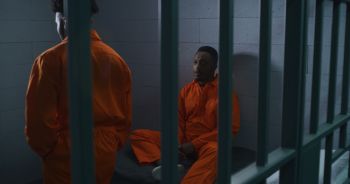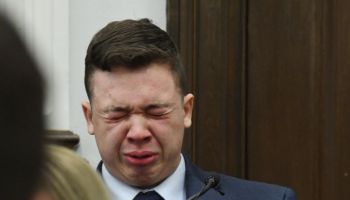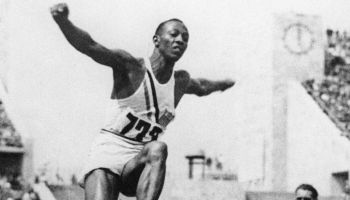A NewsOne Exclusive
Last week’s shooting of an alleged marijuana-dealer at Harvard has exposed the elite university’s long-standing underground drug trade to the harsh light of day.
Justin Cosby — the 21-year-old victim of a May 18 murder believed to be an attempted robbery gone awry — is said to have been selling drugs to students. Two Harvard seniors, both women, have been connected with the incident.
Brittany Smith, 22, is the girlfriend of alleged shooter Jabrai J. Copney, 20. Chanequa Campbell, 21, is alleged to be connected to both Cosby and Copney. The two other alleged assailants have yet to be found.
On an otherwise quiet campus, this violent drug-related crime and the alleged student involvement has publicly bared what many at the college have been aware of for years:
“Everyone’s like, ‘What was this random guy doing on campus?’ It’s because Harvard students are buying drugs,” says a recent graduate, who requested anonymity. “There are people on campus who are supporting this operation.”
Harvard Student Expelled In Connection With Campus Murder, Claims Racism
Black Female Student Singled Out
According to this graduate and others, Campbell was long rumored to be a part of that scene.
“It was something that was whispered about on campus months before the shooting — that she sold cocaine, ecstasy, hard drugs,” says the source.
While Brittany Smith will still graduate in June, Chanequa Campbell, a sociology concentrator from Brooklyn who received National Merit Scholarship, as well as scholarships from The New York Times, Coca-Cola, and Goldman Sachs, has been banned from campus.
Campbell is suspected of being the link between Cosby, the victim and alleged marijuana dealer, and Copney, who has been charged with the shooting. Authorities also said someone gave Copney a Harvard access card, which allowed him to enter the Kirkland House dormitory, where the shooting took place.
Campbell states she wasn’t involved in last week’s events and is being wrongfully linked to the murder. She denies selling drugs to students, and says that it was not her card that Copney used to enter the dorm. Campbell told the Boston Globe in a telephone interview: “I do believe I am being singled out. . . . The honest answer to that is that I’m black and I’m poor and I’m from New York and I walk a certain way and I keep my clothes a certain way. . . . It’s something that labels me as different from everyone else.”
This isn’t the first time the university has been accused of racial profiling. Since the murder, black students have reported receiving extra scrutiny.
“Lately I’ve definitely been getting some interesting looks from white people, security guards and other security personnel,” said Malcolm Rivers, a black Harvard student and classmate of the Campbell and Smith.
“As a black man on campus, you understand that that’s part of the territory.”
Rivers went on to say that while black female students like Campbell and Smith might not be as overtly looked upon with suspicion, that they might face a different kind of stereotyping in the wake of the murder.
“People are going to be like, ‘These girls brought the hood with them,’” Rivers said.
Bringing The Streets To The Top Schools
Both Smith and Campbell are New York City natives, hailing from Harlem and Brooklyn respectively.
Campbell is an alumni of the Prep for Prep program, which takes students from tri-state area public schools and prepares them to attend elite private and boarding schools. The students in Prep are generally from poor families, and come from low-income neighborhoods in places like the Bronx and Brooklyn. After Prep for Prep, most of these students end up at the best colleges and universities—if not Ivy League, then certainly first tier. Prep for Prep works to prepare students not just academically, but also mentally and emotionally for the adjustment in environment. But leaving behind past lives, especially the pervasive drug culture, sometimes proves problematic.
“In these elite schools, there are organized activities that are not good. There are drugs and alcohol present. So it’s possible to continue whatever you were doing in the ‘hood, or even pick it up if you weren’t exposed to it,” says a source within Prep for Prep.
“Sometimes it’s not even the case that it’s bringing the ‘hood with you, so much as it’s you finding what you were exposed to in your neighborhood in a different environment,” the source continues.
“This Is Not The Wire”
Indeed, students at Harvard who sought marijuana or, for those who could afford it, harder drugs like cocaine, weren’t likely to run into any problems getting it. Students from all socioeconomic backgrounds , from athletes and elite social club members, to pre-law students and student newspaper reporters, have been known to indulge without too much concern for the consequences.
“People thought, ‘This is not The Wire. Guns are not going to come out. There aren’t going to be repercussions,” says a current student, who also asked for anonymity.
But the events of last week brought home the stark reality of the consequences of welcoming illegal drugs into the ivy gates: a young life extinguished, potential prison time, reputations called into question, and an academic career cut short.
The dean of Harvard College, Evelynn Hammonds, sent a letter to the university community last week pledging to address the situation that led to the shooting.
“I intend to work with student leaders and others to address the nature and risks of illicit drug use on campus, to underscore the importance of safety and security practices for the entire College community, and to examine the adequacy of existing policies relating to student life,” she wrote.
With finals completed and this year’s commencement ceremonies only a week away, the effects of any efforts to reform the campus drug culture will likely remain to be seen until this fall.
















